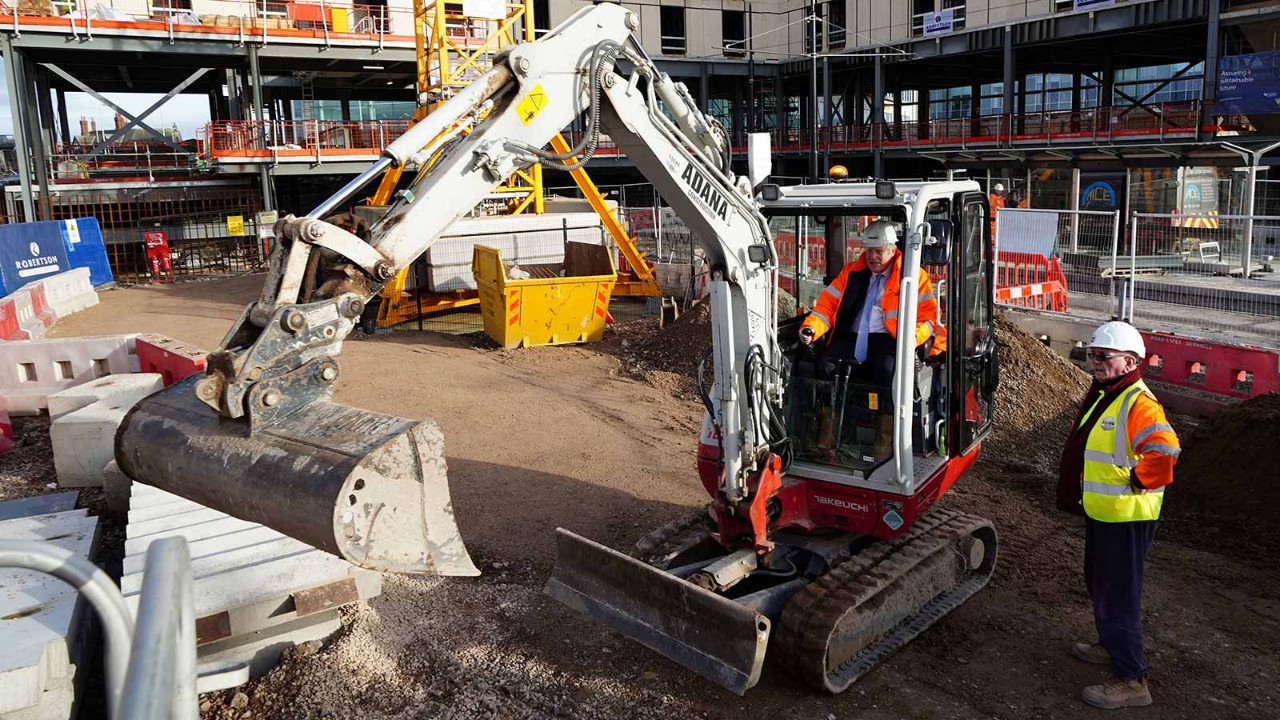
Vibrant urban centres are key to a thriving local economy. Breathing life back into towns and cities is a key part of the government’s levelling-up agenda, although the Levelling Up and Regeneration Bill in the Queen's Speech was described by public sector commentators as 'underwhelming' and containing 'something for everyone to get upset about'.
The government has nonetheless committed serious cash to the idea. Its £3.6 billion Towns Fund has been bolstered by a range of other policies including temporary business rates relief, the High Streets Task Force and the Future High Streets Fund.
'It’s not about the financial yield of a project but whether it has wider social value – it has to wash its own face'
Councils have a wide remit when it comes to boosting local economies through urban regeneration. ‘It isn’t just about high street shops,’ says Steve Thompson, Blackpool Council’s director of resources. ‘Regeneration includes things like transport, social housing, higher education, office accommodation, leisure and hospitality. As accountants, we are responsible for a huge patchwork of interventions.’
Blackpool, says Thompson, has ‘risen up the league table of deprivation over the last 20 years,’ and despite what he describes as a ‘phenomenal bounceback’ from the pandemic, the town faces many deeply entrenched inequalities and challenges.
It isn’t all about looking at the business case for proposed projects. In Thompson’s case, he also has to work hand-in-hand with local businesses to ensure external funding for projects is matched and, where possible, revenue from projects is reinvested in the local community.
And the business cases aren’t so straightforward to write. ‘First of all,’ he says, ‘we have to take calculated risks - within necessary boundaries of course, but risks all the same. Second, when we look at business cases, it’s not about the financial yield of the project but about whether it has wider social impact, although it has to wash its own face.’
'Painting Blackpool Tower isn’t everyone’s idea of urban regeneration, but it has to be done'
This consideration of more than just the bottom line, says Thompson, is more complex than just saying ‘yes’ to something that looks likely to make money. And the council has to approve spending on projects that don’t initially seem too exciting.
‘Fixing and painting Blackpool Tower isn’t everyone’s idea of urban regeneration,’ he says, ‘but it has to be done. Leisure and tourism is 30–40% of our income as a town, and Blackpool Tower looking fresh is a part of that.’
Less can be more
While Blackpool is at one end of the scale, York is at the other. The city is recovering well and, says Patrick Looker, head of service finance at the council, in possession of a ‘relatively healthy economy.’ But, he says, walk through the city centre and you’ll see that although footfall has recovered well after Covid, plenty of retail units stand empty.
Looker says that this level of unrented space reflects a national-level problem. ‘People are shopping online more and nearly every town and city has this issue,’ he says.
Instead of getting stuck in, Looker says it’s more his job to be 'convinced'. ‘The Council doesn’t feel it’s our remit to buy out landlords,’ he says. ‘Yes, physical retail isn’t as popular as it used to be, but the lived experience of going into York is lucrative. People come here because it’s a pleasant and safe place. Why would we intervene if it’s economically successful?’
Where the council does get involved, it has to ensure that finances are protected. ‘We have to keep our eyes open and do everything we can to protect council taxpayers. This means questioning rigorously where we get involved, making sure that there are proper business cases for everything, and making sure that we’re partnering with private businesses where we can.’
'Yes, but...'
Looker says the role often requires him to say ‘yes, but..’. ‘People come to us with a lot of exciting ideas. Everyone likes the part where you talk to the architects and the urban planners but as an accountant you’re the person in the room whose job it is to really challenge people.’
The role of the accountant within local council is to protect and represent members of the public. ‘It’s easy to say yes to projects when you’re a wealthy city, but problems can come out at a late stage after the money is spent, and then suddenly it’s potentially wasted. It’s really important that there’s a person to convince – and that person is me.’
‘The role is all about building confidence in the projects councils want to undertake. That’s exciting.’
‘I don’t necessarily take pride in being the person to say ‘no’,’ says Looker, ‘it’s my fiduciary responsibility to protect taxpayers.’
They’re not just saying ‘no’ in York though, says Looker. ‘We do have some really exciting projects, not least the York Central project we’re doing in partnership with Network Rail.’ The city has plans to develop a large brownfield site off the back of the railway station, putting in new housing and a new commercial centre with enterprise-zone status.
‘It’s a really good example of how you have to work with partners and pull together funding to get projects done,’ says Looker. The council has central government funding, Homes England funding through the Housing Infrastructure Fund, and help from West Yorkshire Combined Authority and the West Yorkshire Transport Fund.
For Thompson in Blackpool, it’s all about trust. ‘The role is all about building confidence in the town's economy so that more and more of the investment comes from the private sector,' he says. ‘The future is exciting and bright for Blackpool.’
More information
For career opportunities in the public sector, see ACCA's jobs board

